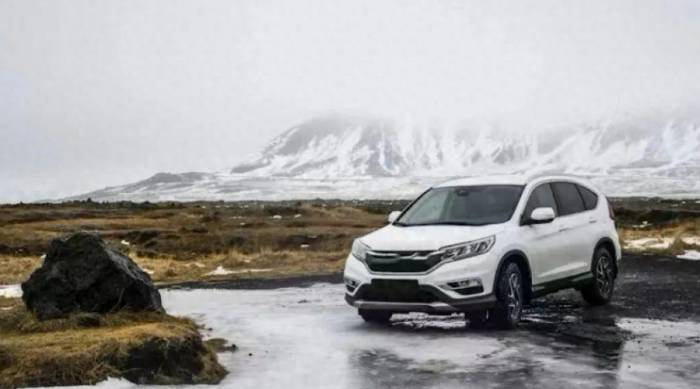15 Japanese companies will receive government funding to establish supply chains in Southeast Asia.
Fifteen Japanese companies, including Isuzu Motors and Sojitz Corporation, will receive government funding to establish supply chains in Southeast Asia as part of a plan estimated at 100 billion yen ($679 million).
Japan's Ministry of Economy, Trade and Industry is about to announce 13 demonstration projects that will receive a total of 35 billion yen ($238 million) in national aid. These projects are located in member countries of the Association of Southeast Asian Nations and will involve technology development and capital investment, which is expected to bring competitive advantages to Japanese companies in the region and offset China's influence.
The Japanese government's aid will come from a 140 billion yen subsidy plan allocated for 2023, which targets investments in the "Global South."
Semiconductors will be an important part of the supply chain projects. Japan plans to support a chip packaging production line built by Mitsumi Electric in the Philippines. This production line will allow front-end and back-end processes to be handled in Japan and the Philippines.
The Japanese government will also subsidize Tokuyama's manufacturing operations in Vietnam, which is a global leader in the field of polysilicon for semiconductors.
Advertisement
Automobiles and decarbonization are also seen as key areas. Isuzu and Mitsubishi Corporation are piloting a project in Thailand to introduce electric vehicles with easily replaceable batteries and battery swapping stations.This will help Japan establish a battery supply chain in Thailand, where China is rapidly expanding its electric vehicle market share in the country.
Sojitz and Green Power Development will receive funding to pilot the production of sustainable aviation fuel (SAF) in Southeast Asia. The use of sustainable aviation fuel can reduce carbon emissions in the industry.
Japan intends to increase the use of eco-friendly aviation fuel to about 10% of all aviation fuel by 2030. The project of Sojitz and Green Power Development will diversify Japan's fuel sources.
In the energy sector, the Japanese government will provide assistance to a plan by Toyo Engineering Corporation and Itochu Corporation, which will supply green hydrogen for ammonia production facilities in Indonesia. The so-called green hydrogen does not emit carbon during the manufacturing process.
Japanese car manufacturers have traditionally performed strongly in the ASEAN region, but Chinese companies such as BYD are leading in local electric vehicle production.
China's influence in the ASEAN region is growing, as it controls most of Indonesia's nickel supply chain, which is a key material for electric vehicle batteries.
China's share in ASEAN trade has nearly tripled from 7.3% in 2003 to 19.7% in 2023. Japan's share has halved over the past two decades, from 13.6% to 6.7%.
Japan is working with ASEAN to seek the establishment of supply chains that do not depend on China, while expanding market share.
In recent years, Japan has been committed to promoting cooperation with Southeast Asian countries. For many years, several Japanese car manufacturers such as Toyota and Honda have established factories in ASEAN, with an annual production of more than 3 million vehicles locally, accounting for 80% of the total production in the ASEAN region.
In May of this year, Japan intends to work with ASEAN to formulate the first joint strategy for car production and sales in the region. Both parties plan to formulate a medium-term strategy by 2035.This strategic initiative jointly undertaken by Japan and ASEAN encompasses the following four points. First, to enhance the overall level of the automotive industry by cultivating talent, the funding for talent cultivation primarily comes from the 140 billion yen (approximately 6.5 billion RMB) subsidy confirmed by the Japanese Ministry of Economy, Trade and Industry in the supplementary budget for the fiscal year 2023, which includes digital education for employees at factories and parts supply chain companies. Second, to achieve decarbonization of the automotive manufacturing process, mainly by visualizing the carbon dioxide emissions of factories using Japanese technology and promoting the utilization of renewable energy in the decarbonization of manufacturing processes. Third, to secure investment in new fields such as mineral resources and biofuel development, in which joint procurement of rare minerals needed for new energy batteries and research on recycling of used batteries, as well as research and development of biofuels using waste oil, are conducted. Fourth, Japan and ASEAN will share information with the outside world.

Japanese media reports that as Chinese companies like BYD and SAIC Motor strengthen their influence in various ASEAN countries, Japanese companies increasingly need government intervention to formulate joint strategies. Taking the Thai market as an example, 85% of electric vehicles sold locally in 2023 are Chinese brands. A senior executive of an automotive company said, "Due to reasons such as rising interest rates, the overall demand in the Southeast Asian automotive industry has declined, with only Chinese car companies standing at the forefront."
Experts believe that Southeast Asia is an important overseas market for Japanese car companies and is also regarded as a major potential market, which is a strategic focus that must be contended for and protected. Faced with competition from Chinese car companies, Japanese car companies have heightened their sense of crisis, increasing investment to maintain a competitive advantage against China. ASEAN is also happy to take this opportunity to attract Japanese companies to expand investment and help local economic development.
*Statement: This article is the original creation of the author. The content of the article is the author's personal opinion, and our reposting is only for sharing and discussion, does not represent our approval or agreement, if there are any objections, please contact the background.
Comments